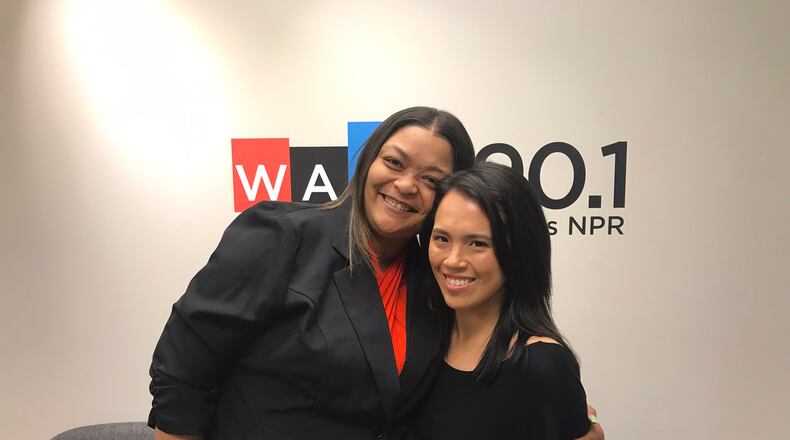Public Broadcasting Atlanta has canceled its hip-hop podcast “Bottom of the Map.”
The podcast, which focuses on hip-hop music in the Deep South, debuted last year and has aired more than 30 episodes during two seasons. It was hosted by two women of color: Kennesaw State assistant English professor Regina Bradley and music journalist Christina Lee.
It was a bold effort by PBA to attract a younger, hipper audience.
“Proof the south still got something to say about the music and the culture,” Bradley wrote today on Facebook. “Nobody can do it better than us. Nobody WILL do it better than us... Cause that's what southerners do. Thanks for the opportunity.”
Lee said, in an email, that she was not told why the podcast was cancelled.
“The silver lining is that yes, there’s a chance we could revive it elsewhere,” she said.
Scott Woelfel, chief content officer, released a statement, saying the pandemic has created budgetary constraints that “caused us to make some tough choices about our programming slate and associated costs. In light of our current financial limitations, we could not find a path forward to produce more episodes.”
Among the subjects the podcast explored were Andre 3000 of Outkast, Big K.R.I.T., Rapsody, trap music, the film “Hustle & Flow” and the phrase “Dirty South.”
“Bottom of the Map” is named after a song by Atlanta rapper Young Jeezy.
Both women, in an interview last year, noted how their gender is often shunted aside in the hip-hop world.
“In many cases on radio,” said Lee, “the women serve as referee, telling opinionated men to calm down. We’re usually on the sidelines. I think it’s an honor to be able to lead this conversation with someone like Regina.”
The podcast is not for neophytes of the genre and not geared for the typical older NPR listener. The target audience, according to Public Broadcasting Atlanta director of marketing Je-Anne Berry last year, is an 18 to 39-year-old well-versed in Southern hip hop who attends music festivals, is college educated and likes raw and laid-back conversation.
“This is how public radio can enter a brand new space,” said Lee. “It can take a different tone without dumbing things down.”
About the Author
Keep Reading
The Latest
Featured



